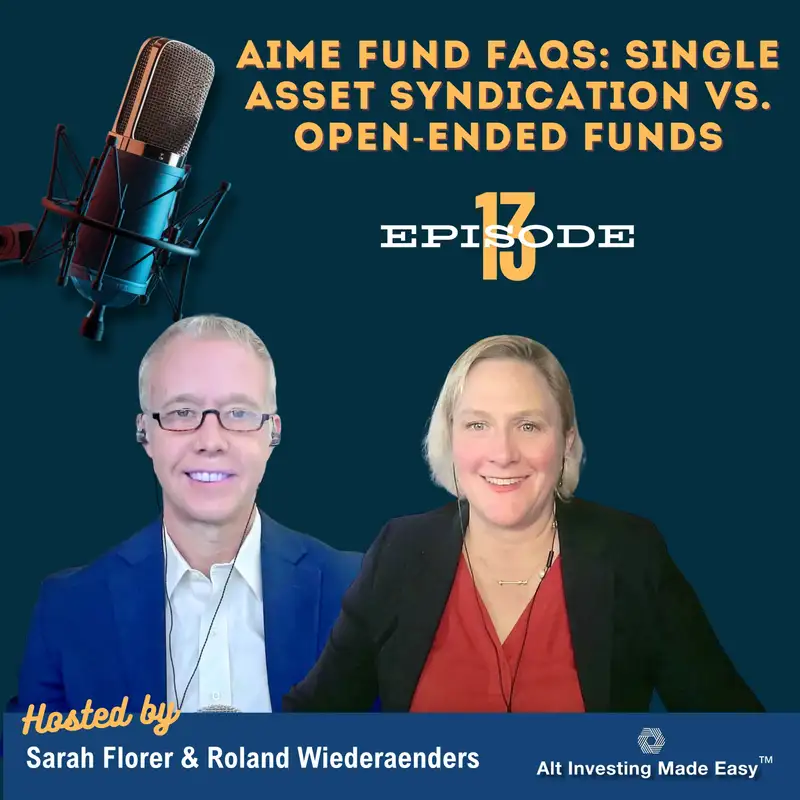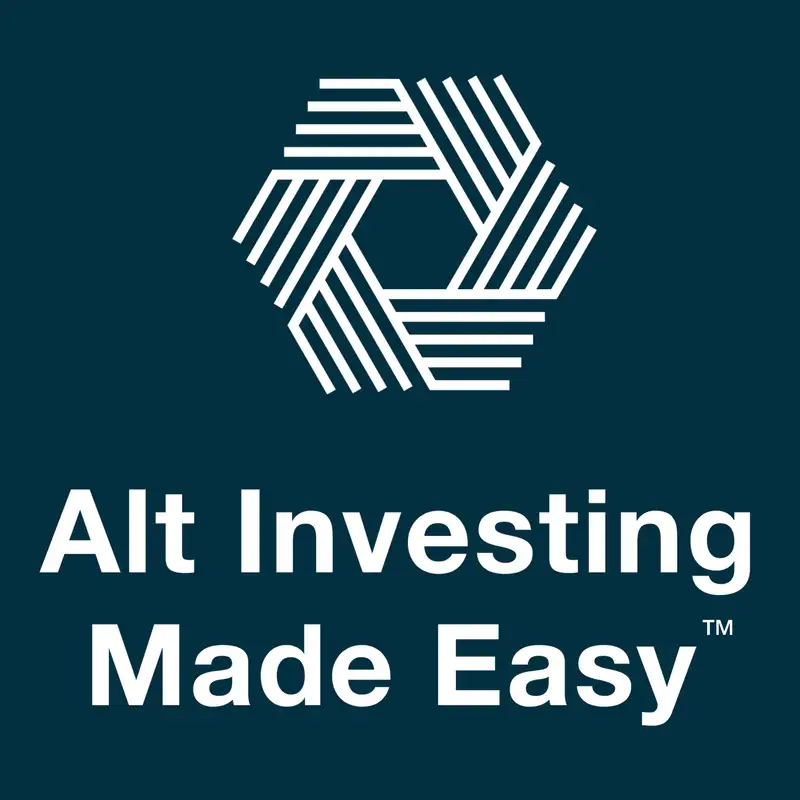E13: AIME Fund FAQs - Single Asset Syndication vs. Open-Ended Funds
In this episode of Alt Investing Made Easy, hosts Roland and Sarah delve into the differences between open-ended funds and single asset funds, particularly in the context of commercial real estate. They discuss the advantages of open-ended funds, such as flexibility and diversification, while also addressing the importance of cash management, investor contributions, and transparency in disclosures. The conversation emphasizes the need for a solid investment strategy and the significance of maintaining trust with investors through honest communication about past performance. The episode concludes with insights on fund duration, liquidity terms, and the broader applicability of open-ended funds beyond real estate.
Credits and Contacts:
Credits and Contacts:
Sponsored by:
Real Advisers, Austin, Texas
Real Advisers, Austin, Texas
Special thanks to:
For more information: AltInvestingMadeEasy.com
Please contact us: info@AltIvestingMadeEasy.com
Roland Wiederanders: Roland@grablemartin.com
Sarah Florer: sflorer@grablemartin.com
Disclaimer: “This production is for educational purposes only and is not intended as investment or legal advice.”
© 2024 AltInvestingMade Easy.com LLC All rights reserved
Takeaways
Takeaways
- Open-ended funds provide flexibility and diversification for investors.
- Understanding the difference between capital contribution and capital commitment is crucial.
- Cash management policies are essential for deploying investor funds effectively.
- Transparency in disclosures builds trust with investors.
- Honesty about past performance, including failures, is vital to avoid legal issues.
- There are no limitations on the dollar amount that can be raised under Reg D.
- Liquidity terms should be considered when structuring open-ended funds.
- Investor relations are key to managing expectations and maintaining trust.
- Open-ended funds can be applied to various investment strategies beyond real estate.
- Investors often invest in the manager's integrity rather than just the deal itself.
Chapters
00:00 Introduction to Alternative Investing
01:17 Understanding Open-Ended vs. Single Asset Funds
03:09 Transitioning to Open-Ended Funds
10:33 Investor Contributions and Cash Management
11:31 Importance of Disclosure in Open-Ended Funds
15:29 Transparency and Track Record
19:03 Fund Duration and Liquidity Terms
26:43 Open-Ended Funds Beyond Real Estate
30:52 Conclusion and Final Thoughts
Creators and Guests

Host
Roland Wiederaenders
Co-founder of the Alt Investing Made Easy podcast, investment advisor, and corporate securities attorney with expertise in private investment funds, corporate/securities issues, mergers and acquisitions, partnership structuring, and federal income tax matters. Roland is also a member of Grable Martin PLLC.

Host
Sarah Florer
Co-founder of the Alt Investing Made Easy podcast, investment advisor, and corporate attorney with expertise in corporate finance and securities, structuring and restructuring, and commercial matters. Sarah is also a member of Grable Martin PLLC.

Producer
Anthony Carrano
Co-founder of the Alt Investing Made Easy podcast, fractional Chief Marketing Officer, entrepreneur, and Managing Partner at Dunamis Marketing.

